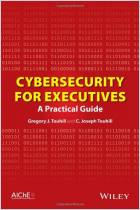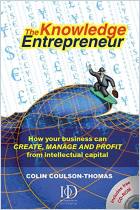Have you ever had to decide whether to pick up that juicy Tom Clancy book or that stale, but important business one? Steven Fink splits the difference and solves your problem with this book that is half spy story, half business advice. As business advice, the book highlights the basic issues for U.S. companies fighting economic espionage, but falls short of serving up a complete playbook. Nonetheless, it's a good starting point to take action to protect your company.
Meet The New Bank Robber
Willie Sutton is famous for answering, “It’s where the money is“ when asked why he robbed banks. Today, the money resides in the wealth-producing intellectual property of growth companies. Today’s spies are merely the descendants of Willie Sutton - following the money into the files, databases and minds that contain it. In the 1980s, the total cost of economic espionage to U.S. businesses was $1.2 trillion. That’s a huge take. Start your defense with this knowledge: You have something very valuable to defend and there are enemies that intend to attack it.
Vulnerabilities
When the economy takes a dive, economic espionage spikes. Why? The stakes are raised for everyone. Businesses that are used to comfortable margins must operate on razor-thin edges, and they look for any way to keep that edge sharp. Individuals become unemployed and underemployed and look for ways to maintain their lifestyle. When layoffs create a glut of workers, the resulting competition for jobs causes applicants to look for an edge. Many times, that edge can be the information they acquired during employment. When profits go down, your antennae should go up.
<...
Steven Fink is one of the world’s leading authorities on crisis management, crisis communications, and economic espionage. Currently president of Lexicon Communications, he has counseled global corporate leaders at such companies as ExxonMobil, Warner Lambert/Pfizer, Schick/Wilkinson Sword, ARCO, Northrop Grumman, Dun and Bradstreet, and Northern Telecom. He is author of the bestselling Crisis Management: Planning for the Inevitable.














Comment on this summary